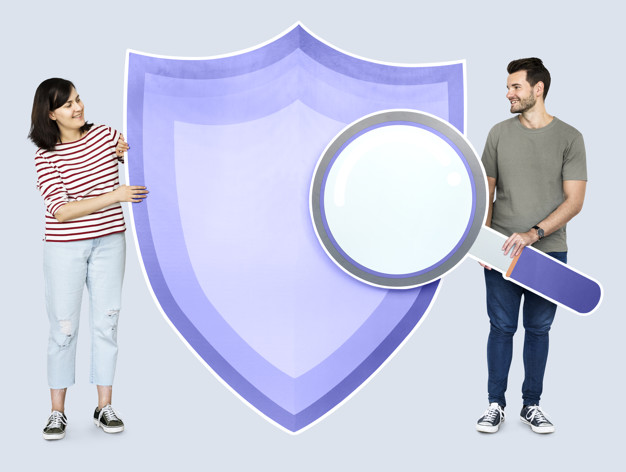Thanks to technology, we are always connected. Whether it’s checking our emails during the morning commute or ordering your food shopping online, a large proportion of our lives is spent online.


Thanks to technology, we are always connected. Whether it’s checking our emails during the morning commute or ordering your food shopping online, a large proportion of our lives is spent online. Because of this, huge amounts of our personal information and data is stored in digital form - it is said that our phones contain more personal information about us than our homes - yet, not many people are aware of this. This means that the attention we pay to making sure our personal information and details are safe and private is likely to be very low on people’s list’s of concern.
It is predicted that in the UK, we spend around £100 million each year on anti-virus software in order to keep our data protected, however, email hacking and identity theft are still rife and are one of the most reported crimes. It is important to have both a safe and productive life online and when done safely, this allows you to discover new information, stay connected with friends and family and organise your day to day life.
Update your security regularly
With security software, you should keep this regularly updated in order to keep cyber attacks at bay. Older software systems may not be able to properly protect your data or computer from the latest hacking methods used by cyber criminals. Cyber attacks are growing increasingly more common, and more complex, so cyber security and protection should be at the forefront of everyone’s minds.
Don’t open emails from unknown sources
Hackers are growing more and more clever, which means that when it comes to browsing your emails, you need to be more alert than ever. You might be busy and short on time, but it is important for you to be vigilant when it comes to your emails. You shouldn’t ever open an email from someone who you don’t know and be wary of unknown email addresses and images and attachments.
If yout get an email from a business, but are suspicious of the authenticity, you can normally contact the company directly and confirm with them as to whether it is genuine or not. This is especially true for things such as bank statements, utility bills and payments.
Avoid using public Wi-Fi sources
Whilst this is something many of us do as second nature in shops, cafes and during the commute, joining a public Wi-Fi network puts your data and information at risk. Hackers can position themselves so that they are between you and the Wi-Fi access point, which means you are sending your data directly to them. This is an especially high risk for those who work remotely and travel for business. If you are regularly using public Wi-Fi, make sure that you know about keeping your information private and secure.
Consider your app security
Apps are a major part of smartphone and tablet operation and many of us have dozens of apps installed on our devices. Whilst most apps are completely secure and come recommended by reputable companies and businesses, there are some which are a front for something more sinister. Some apps are malicious, as they contain malware, viruses or some other way of harming you and collecting your data. The people behind these apps will take your personal information, passwords or payment details and then share them with others.
Many apps aren’t properly encrypted, meaning that a smart hacker can gain access to it if they wanted to. When you’re using apps, try to make sure that you are using a secure network so that even if the app isn’t encrypted, the network will make sure that it is secure. This is especially true if you use home assistants, as these devices have recently been exposed to be quite vulnerable. Google and Alexa developers are continuously working to make sure that these apps and features are secure, but in the interest of the safety of your personal information, use these at home on a secure network.
Back up your data
One of the best ways to ensure that your data is protected is to keep your computer backed up. By doing this, if you ever become the victim of theft, or if something happens to your laptop or computer, then you have another copy of everything, so that nothing gets lost in the process. Be sure to backup your data reguarly - a monthly basis is recommended, if you use it daily - or set up your device to backup automatically.
You could also use an external hard drive as another way to protect and back up your data, as this provides another level of protection and security, especially if you are useing software which enables only you to access your data.
By using these measures, you can help to avoid having your data compromised and keep it safe and ensure that it is protected against any potential threats. If everyone adopted these steps towards creating a secure cyber space, then the possibility of future cyber attacks and crime is significantly reduced.






